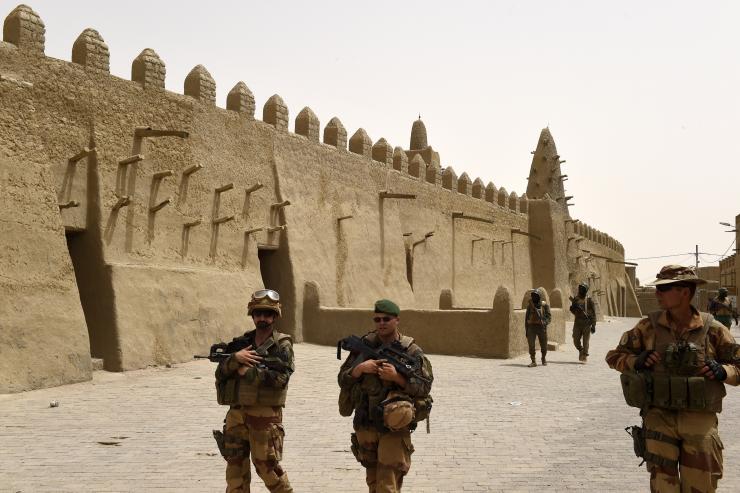-
Tips for becoming a good boxer - November 6, 2020
-
7 expert tips for making your hens night a memorable one - November 6, 2020
-
5 reasons to host your Christmas party on a cruise boat - November 6, 2020
-
What to do when you’re charged with a crime - November 6, 2020
-
Should you get one or multiple dogs? Here’s all you need to know - November 3, 2020
-
A Guide: How to Build Your Very Own Magic Mirror - February 14, 2019
-
Our Top Inspirational Baseball Stars - November 24, 2018
-
Five Tech Tools That Will Help You Turn Your Blog into a Business - November 24, 2018
-
How to Indulge on Vacation without Expanding Your Waist - November 9, 2018
-
5 Strategies for Businesses to Appeal to Today’s Increasingly Mobile-Crazed Customers - November 9, 2018
Timbuktu ‘mausoleum destroyer’ sent to ICC
“Mr. Al Faqi is suspected, according to an ICC arrest warrant issued on 18 September 2015, of war crimes allegedly committed in Timbuktu, Mali, between about 30 June 2012 and 10 July 2012, through intentionally directing attacks against buildings dedicated to religion and/or historical monuments”, the ICC said in a statement.
Advertisement
The court said Ahmad Al Mahdi Al Faqi, known as Abu Tourab, had headed Hesbah, or “Manners’ Brigade”, in 2012, which helped execute the decisions of the Islamic Court of Timbuktu.
Faqi was a leader of Ansar Dine, a mainly Tuareg group linked to Al-Qaeda in the Islamic Maghreb (AQIM) and one of the groups that briefly took control of Mali’s vast arid north in 2012.
In his role as part of the Islamic Court of Timbuktu, Faqi is alleged to have jointly ordered or carried out the destruction of nine of the mausoleums as well as the Sidi Yahia mosque.
The case, the first ever war-crimes prosecution in The Hague for acts of cultural destruction, could set a precedent for further arrests for similar attacks on historic buildings in places such as Palmyra, the ancient site in Syria where temples and tombs have been blown up by Islamic State extremists in recent weeks.
She called the destruction “a callous assault on the dignity and identity of entire populations, and their religious and historical roots”.
ICC Prosecutor Fatou Bensouda said in a statement that al-Mahdi’s detention “is a welcome development”. The extremists, who considered the structures as totems of idolatry, were driven out almost a year later by the French military. At the peak of its influence in the 15th and 16th centuries, Timbuktu counted 180 schools and universities which received thousands of students from all over the Muslim world.
UNESCO led a global movement decrying the?destruction in the age-old city on the southern edge of the desert and helped with the Government and local community to rebuild and restore the mausoleums.
“There are also in Timbuktu today others who collaborated in the destruction of the mausoleums”.
Advertisement
“Today’s arrest and surrender signals that there will be a price to pay for destroying the world’s treasures”, said Corrine Dufka of Human Rights Watch’s Africa division. Prosecutors opened an investigation in 2013 and Al Faqi is the first suspect detained.





























